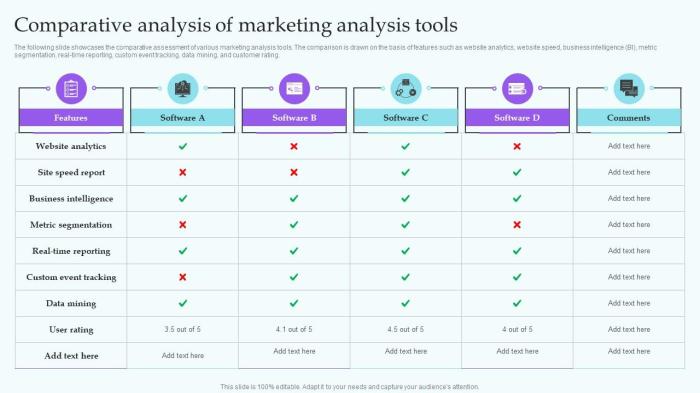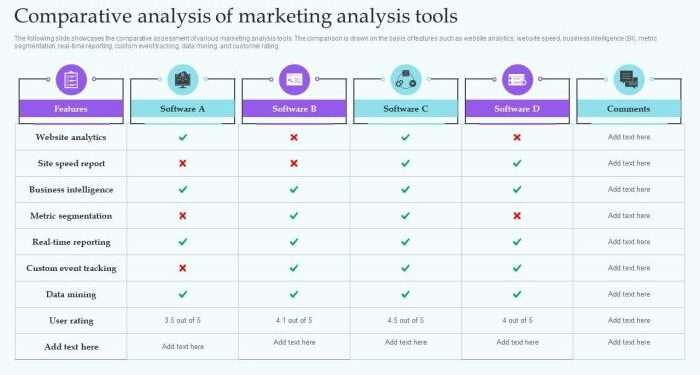Delving into Comparing Market Platforms: Accuracy vs Speed, this introduction immerses readers in a unique and compelling narrative, with a casual formal language style that is both engaging and thought-provoking from the very first sentence.
As we explore the realm of market platforms, the balance between accuracy and speed emerges as a critical factor that shapes user experiences and decision-making processes.
Accuracy vs Speed in Market Platforms

Accuracy and speed are two crucial factors that play a significant role in the performance of market platforms. Let's delve into the importance of accuracy, the advantages of speed, and how they impact user experience.
Importance of Accuracy in Market Platforms
Accuracy is paramount in market platforms as it ensures that the information provided to users is reliable and trustworthy. When users can depend on the accuracy of data regarding product details, pricing, and availability, they are more likely to make informed decisions and have a positive experience.
Having accurate information also helps in building credibility and trust with users, leading to customer satisfaction and loyalty. Inaccurate data can result in misunderstandings, dissatisfaction, and ultimately harm the reputation of the platform.
Advantages of Speed in Market Platforms
Speed is equally important in market platforms as it contributes to efficiency and user satisfaction. Fast response times, quick loading pages, and seamless navigation enhance the overall user experience by saving time and reducing frustration.
Speedy transactions, swift search results, and instant notifications can all lead to increased user engagement and retention. Users appreciate platforms that are fast and responsive, allowing them to make purchases or decisions without unnecessary delays.
Impact on User Experience
- Accuracy ensures that users can trust the platform and make informed decisions, leading to a positive user experience.
- Speed enhances user satisfaction by providing quick and efficient interactions, improving overall usability.
- Balancing accuracy and speed is crucial to creating a seamless user experience that is both reliable and efficient.
Features Influencing Accuracy

When it comes to market platforms, accuracy is crucial for making informed decisions and maximizing results. Several key features play a significant role in influencing the accuracy of these platforms.
Data Aggregation and Integration
Data aggregation and integration are essential features that contribute to the accuracy of market platforms. By collecting and combining data from various sources, these platforms can provide a comprehensive view of market trends and insights. For example, a market platform that integrates data from social media, financial reports, and consumer surveys can offer a more holistic perspective on market conditions, helping users make more accurate predictions and strategies.
Advanced Analytics Tools
The availability of advanced analytics tools is another crucial feature that enhances the accuracy of market platforms. These tools allow users to analyze data more efficiently and identify patterns or correlations that may not be apparent at first glance. For instance, predictive modeling and machine learning algorithms can help users forecast market trends with greater precision, enabling them to make data-driven decisions based on reliable insights.
Data Validation Processes
Data validation processes play a vital role in ensuring the accuracy of information presented on market platforms
Factors Affecting Speed
When it comes to market platforms, speed is crucial for timely transactions and decision-making. Several factors can influence the speed of these platforms, impacting user experience and overall efficiency.
Impact of Network Latency
Network latency plays a significant role in determining the speed of market platforms. Latency refers to the delay in data transmission between the user's device and the platform's servers. High latency can result in slower response times, affecting real-time updates and execution of trades.
Factors such as internet connection quality, distance from servers, and network congestion can all contribute to network latency.
System Architecture Influence
The system architecture of a market platform can also impact its processing speed. A well-designed architecture with efficient data processing algorithms can lead to faster execution of trades and data updates. On the other hand, a complex or outdated system architecture may introduce bottlenecks and slow down the platform's performance.
Scalability, redundancy, and load balancing are key considerations in ensuring optimal system architecture for speed.
Trade-offs Between Speed and Resource Consumption
There is often a trade-off between speed and resource consumption in market platforms. Increasing the speed of transaction processing may require higher resource utilization, such as processing power and memory. On the flip side, optimizing resource consumption may result in slower speeds due to limited computational resources.
Balancing these trade-offs is crucial for achieving the desired performance level while managing operational costs effectively.
Strategies for Balancing Accuracy and Speed
In the development of market platforms, it is crucial to find a balance between accuracy and speed to ensure efficiency and reliability. Here are some strategies to achieve this balance:
Optimizing Accuracy without Compromising Speed
- Implement advanced algorithms and machine learning techniques to enhance data accuracy in real-time without slowing down the platform.
- Regularly update and maintain data quality controls to minimize errors and ensure high accuracy levels.
- Utilize automated data validation processes to quickly identify and rectify inaccuracies without impacting platform performance.
Designing a Framework for Prioritizing Accuracy and Speed
- Establish clear guidelines and standards for data accuracy and processing speed to align development efforts with the goals of the platform.
- Integrate feedback loops and monitoring systems to continuously assess and adjust the balance between accuracy and speed based on user requirements and market dynamics.
- Collaborate with cross-functional teams to incorporate diverse perspectives and expertise in decision-making processes to optimize both accuracy and speed effectively.
Real-World Examples of Successful Implementation
- Amazon's recommendation engine uses a combination of accuracy-driven algorithms and real-time processing to deliver personalized product suggestions to users quickly and accurately.
- Google's search engine balances speed and accuracy by constantly updating its indexing algorithms to provide relevant search results in milliseconds while maintaining high precision.
- Financial trading platforms like Bloomberg Terminal prioritize both speed and accuracy in processing market data to enable traders to make informed decisions swiftly without compromising the integrity of the information.
Closing Summary
In conclusion, the dynamic interplay between accuracy and speed in market platforms underscores the need for a delicate equilibrium to optimize user satisfaction and operational efficiency.
Question Bank
What role does accuracy play in market platforms?
Accuracy is crucial in market platforms as it ensures that decisions and information provided are reliable and trustworthy, fostering user confidence and successful outcomes.
How does network latency affect the speed of market platforms?
Network latency can significantly impact the speed of market platforms by causing delays in data transmission and response times, affecting real-time interactions and overall performance.
Is it possible to achieve both high accuracy and speed in market platforms?
While challenging, it is possible to strike a balance between accuracy and speed by implementing efficient data validation processes and optimizing system architecture for streamlined operations.












